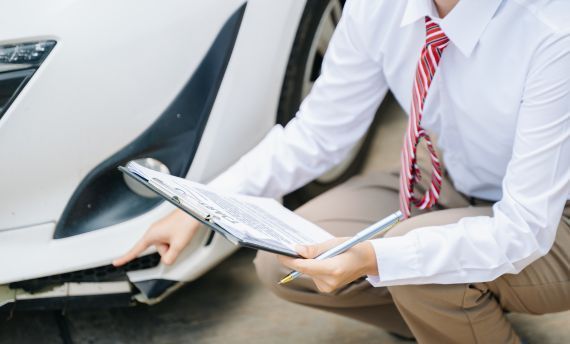
As the summer approaches, many boat owners in Pennsylvania are preparing for a season of fun on the water. However, before setting sail, it's crucial to ensure that all legal requirements are met, particularly regarding boat registration. This article provides an in-depth look at what boat owners in Pennsylvania need to know about registration in 2025, including the latest regulations, fees, and tips for a smooth registration process.
Understanding Boat Registration in Pennsylvania
Boat registration is a legal requirement for all motorized vessels and certain non-motorized boats in Pennsylvania. The Pennsylvania Fish and Boat Commission (PFBC) oversees the registration process, ensuring that all boats operating on state waters are properly documented. Registration not only helps in identifying boats but also plays a vital role in promoting safety on the water. By keeping a record of registered vessels, the PFBC can better manage resources, enforce regulations, and respond to emergencies more effectively, ultimately contributing to a safer boating environment for everyone.
Who Needs to Register?
In Pennsylvania, any motorized vessel must be registered, including personal watercraft like jet skis. Additionally, non-motorized boats such as canoes and kayaks must be registered if they are used on state waters for more than 60 consecutive days. This requirement ensures that all watercraft are accounted for and helps maintain safety standards. Registration also provides boaters with access to various resources, including safety courses and information about local waterways, which can enhance their overall boating experience. Understanding the registration process is crucial for new boat owners, as it lays the groundwork for responsible boating practices.
Exemptions to Registration
While most boats require registration, there are exceptions. For instance, boats that are documented by the U.S. Coast Guard do not need to be registered with the state. Additionally, certain types of boats, such as those used exclusively for racing or those owned by the federal government, may also be exempt. It's essential for boat owners to familiarize themselves with these exemptions to avoid unnecessary registration. However, even if a boat is exempt from registration, owners should still adhere to safety regulations and equipment requirements to ensure the safety of all passengers and other boaters on the water.
Furthermore, understanding the nuances of boat registration can also help owners prepare for inspections and compliance checks. For example, registered boats must display a registration number and validation decals, which indicate that the vessel is compliant with state laws. This not only aids in identification but also serves as a visible reminder of the owner's commitment to safety and adherence to regulations. Additionally, boat owners should keep abreast of any changes in legislation or registration requirements, as these can evolve over time, impacting their responsibilities as boat operators.
The Registration Process
The process of registering a boat in Pennsylvania is straightforward, but it does require attention to detail. Owners must gather specific documentation and follow the prescribed steps to ensure compliance with state laws. Understanding the nuances of the registration process can help boaters avoid unnecessary complications and ensure their vessels are legally compliant for the waters they wish to navigate.
Required Documentation
To register a boat, owners must provide several key documents, including:
- Proof of ownership, such as a bill of sale or previous registration certificate.
- A completed application form, which can be obtained online or at PFBC offices.
- Payment for the registration fee, which varies based on the type and length of the boat.
Having all necessary documents ready can streamline the registration process and help avoid delays. Additionally, it’s important to ensure that all documents are filled out correctly and that any fees are paid in full, as incomplete submissions can lead to extended processing times. Boat owners should also keep copies of all submitted documents for their records, as this can be beneficial for future reference or in case of any disputes regarding ownership.
Where to Register
Boat registration in Pennsylvania can be completed online through the PFBC website, at designated licensing agents, or in person at PFBC offices. Online registration is often the most convenient option, allowing owners to complete the process from the comfort of their homes. However, for those who prefer face-to-face interaction, visiting a local office may provide additional assistance. Local PFBC offices can offer valuable insights into the registration process, including tips on maintenance and safety regulations that every boat owner should be aware of. Furthermore, these offices often host workshops and informational sessions that can enhance a boater's knowledge and skills, making the boating experience safer and more enjoyable.
Registration Fees and Duration
The cost of registering a boat in Pennsylvania varies based on the type of vessel and its length. Understanding these fees is crucial for boat owners to budget appropriately for their boating activities. Proper registration not only ensures compliance with state laws but also enhances the safety and security of the vessel while on the water.
Fee Structure
As of 2025, the registration fees for boats in Pennsylvania are as follows:
- Motorboats: $25 for boats up to 16 feet, $50 for boats between 16 and 26 feet, and $75 for boats over 26 feet.
- Non-motorized boats: $10 for canoes and kayaks.
These fees are subject to change, so it’s advisable for boat owners to check the PFBC website for the most current information before registering. Additionally, boat owners should be aware that certain types of vessels, such as personal watercraft and sailboats, may have specific requirements or additional fees that apply. Understanding these nuances can help avoid unexpected costs and ensure a smooth registration process.
Duration of Registration
Boat registrations in Pennsylvania are valid for two years. Owners must renew their registrations before the expiration date to avoid penalties or fines. Renewal can be done online, making it a convenient option for busy boaters. It’s also important for boat owners to keep track of their registration status, as operating an unregistered vessel can lead to hefty fines and legal complications.
Moreover, during the registration period, boat owners should also consider the importance of maintaining their vessels in good condition. Regular inspections and adherence to safety regulations not only ensure compliance but also enhance the overall boating experience. Engaging in local boating safety courses can provide valuable knowledge and skills, further enriching the time spent on the water. By staying informed and proactive, boat owners can fully enjoy the beauty of Pennsylvania's waterways without the stress of registration issues.
Safety Requirements for Registered Boats
In addition to registration, all boats operating in Pennsylvania must comply with safety regulations. These regulations are designed to ensure the safety of all boaters and passengers on the water.
Essential Safety Equipment
Every registered boat must carry specific safety equipment, including:
- Life jackets for each person on board, with a minimum of one wearable life jacket for each passenger.
- A whistle or horn for signaling.
- Fire extinguishers for motorized vessels.
Having the proper safety equipment not only ensures compliance with state laws but also enhances the safety of all individuals on the water. Additionally, it is crucial to regularly inspect this equipment to ensure it is in good working condition. For instance, life jackets should be free from rips or tears, and fire extinguishers should be checked for proper pressure levels. Boaters should also familiarize themselves with the location of this equipment to ensure quick access in case of an emergency. Regular safety drills can help prepare all passengers for unexpected situations, reinforcing the importance of being proactive about safety.
Boating Education Requirements
In Pennsylvania, individuals born on or after January 1, 1982, must complete a boating safety course before operating a motorized vessel. This requirement aims to promote safe boating practices and reduce accidents on the water. Courses are available both online and in-person, making it accessible for all boaters. These educational programs cover a wide range of topics, including navigation rules, weather considerations, and emergency procedures. By equipping boaters with essential knowledge, these courses help foster a culture of safety and responsibility on the water. Furthermore, many organizations offer advanced courses that delve deeper into specific topics, such as towing and rescue operations, which can be invaluable for those looking to enhance their skills and confidence while boating.
Penalties for Non-Compliance
Failing to register a boat or comply with safety regulations can result in significant penalties. Understanding these consequences is essential for all boat owners.
Fines and Penalties
Boat owners who operate unregistered vessels may face fines ranging from $100 to $500, depending on the severity of the violation. Additionally, failure to comply with safety equipment requirements can result in similar fines and potential legal repercussions. In some cases, repeat offenders may encounter even harsher penalties, including increased fines and possible impoundment of their vessels. Moreover, these infractions can lead to points on a boat operator's record, which may affect insurance rates and future licensing.
Importance of Compliance
Compliance with registration and safety regulations not only helps avoid penalties but also contributes to a safer boating environment for everyone. By adhering to the laws, boat owners can enjoy their time on the water without the worry of legal issues. Furthermore, compliance fosters a culture of responsibility among boaters, encouraging them to prioritize safety measures such as wearing life jackets, maintaining proper navigation lights, and conducting regular vessel inspections. This collective effort can significantly reduce the risk of accidents and enhance the overall enjoyment of recreational boating.
In addition to legal and safety considerations, being compliant can also enhance a boat owner's reputation within the boating community. Many marinas and boating clubs require proof of registration and adherence to safety standards before granting access to their facilities. This not only ensures that all members are abiding by the same rules but also promotes a sense of camaraderie and mutual respect among boaters. Engaging in responsible boating practices can lead to more opportunities for socializing, networking, and participating in community events, ultimately enriching the boating experience.
Renewing Your Boat Registration
As the registration period comes to an end, it's essential for boat owners to understand the renewal process to maintain compliance and avoid any lapses in registration. Keeping your registration up to date not only ensures you are following state laws but also contributes to safer waterways for everyone.
Renewal Process
Renewing a boat registration in Pennsylvania is a simple process. Owners can complete their renewal online through the PFBC website, by mail, or in person at a PFBC office. It is advisable to start the renewal process early to ensure all paperwork is submitted on time. Additionally, boat owners should have their previous registration documents handy, as this information will streamline the renewal process and help avoid any unnecessary delays.
What to Expect During Renewal
During the renewal process, boat owners will need to provide their current registration number and pay the applicable fees. It is also a good opportunity to review safety equipment and ensure that all necessary items are on board for the upcoming boating season. This includes checking life jackets for wear and tear, ensuring fire extinguishers are charged, and verifying that navigation lights are functioning properly. Furthermore, it’s a great time to familiarize yourself with any new boating regulations or safety guidelines that may have been introduced since your last registration.
In addition to the practical aspects of the renewal process, boat owners might also want to take this time to consider any upgrades or maintenance their vessel may need. Whether it’s a fresh coat of paint, new upholstery, or a thorough engine check, getting these tasks done before the boating season begins can enhance both safety and enjoyment on the water. Moreover, many local marinas and boat service centers offer seasonal check-up packages that can help ensure your boat is in top shape for the adventures ahead.
Changes in Regulations for 2025
As with any legal framework, regulations surrounding boat registration can change. Staying informed about these changes is crucial for all boat owners in Pennsylvania.
New Registration Fees
In 2025, the PFBC has proposed adjustments to registration fees to better reflect the costs of maintaining boating infrastructure and safety programs. While the exact amounts are still under discussion, boat owners should prepare for potential increases in registration costs. This adjustment aims not only to cover the rising expenses associated with the upkeep of marinas and launching ramps but also to support educational initiatives that promote safe boating practices. Understanding the rationale behind these fees can help boaters appreciate the value of their contributions to the boating community.
Enhanced Safety Regulations
Additionally, there may be new safety regulations introduced in 2025, focusing on environmental protection and enhanced safety measures. Boat owners are encouraged to stay updated on these changes to ensure compliance and promote responsible boating practices. These regulations could include stricter guidelines on waste disposal, the use of eco-friendly materials in boat manufacturing, and mandatory safety equipment checks before heading out on the water. Such measures not only aim to protect aquatic ecosystems but also enhance the overall safety of all individuals enjoying Pennsylvania's waterways. By being proactive and informed, boat owners can play a vital role in fostering a culture of safety and environmental stewardship within the boating community.
Resources for Boat Owners
For boat owners looking for more information about registration, safety requirements, and boating in Pennsylvania, several resources are available.
Pennsylvania Fish and Boat Commission
The PFBC website is the primary source of information for boat registration and regulations. It provides comprehensive details on registration processes, safety requirements, and educational resources for boaters.
Local Boating Clubs and Organizations
Joining a local boating club can also be beneficial. These organizations often provide valuable resources, including safety courses, community events, and networking opportunities with other boaters. They can be a great way to stay informed about local regulations and best practices.
Conclusion
Boat registration in Pennsylvania is a vital aspect of responsible boating. By understanding the registration process, safety requirements, and potential changes in regulations for 2025, boat owners can ensure a safe and enjoyable boating experience. Staying informed and compliant not only protects individual boaters but also contributes to the overall safety and enjoyment of Pennsylvania's beautiful waterways.
As the boating season approaches, taking the time to register and prepare your vessel will pay off in peace of mind and a summer filled with adventure on the water.













